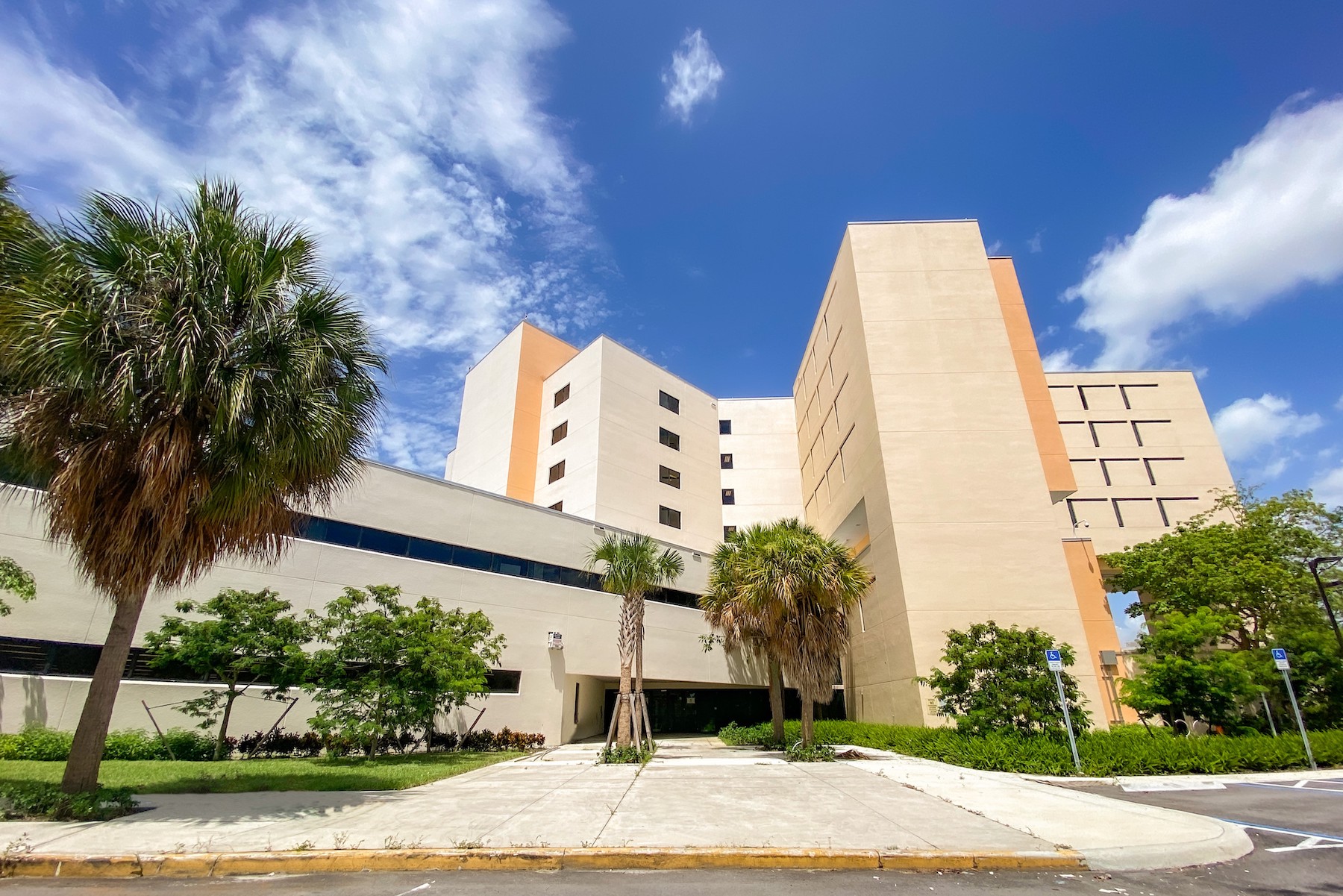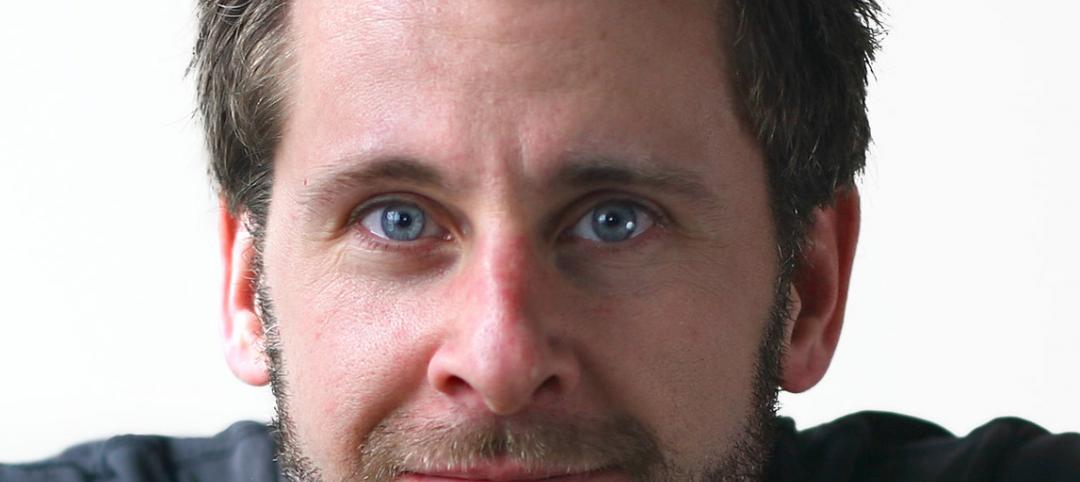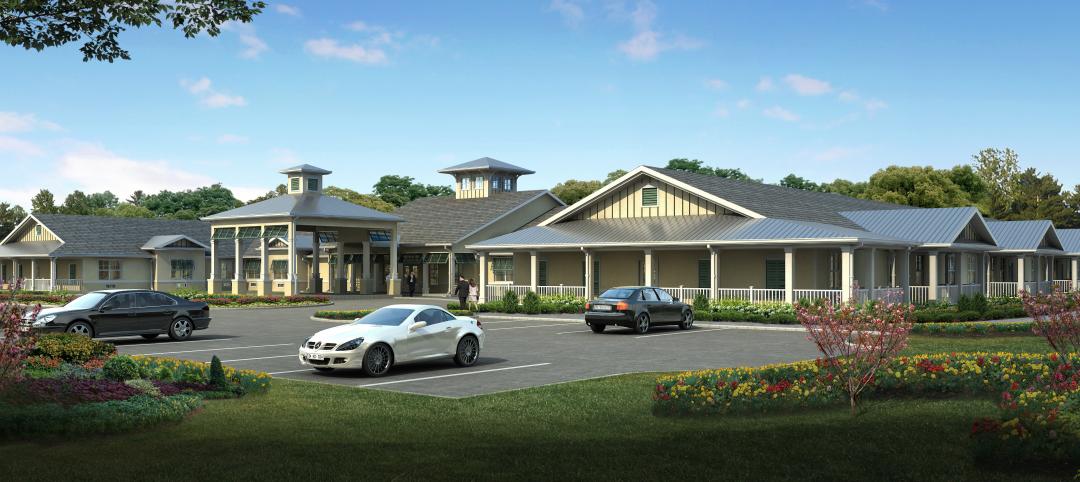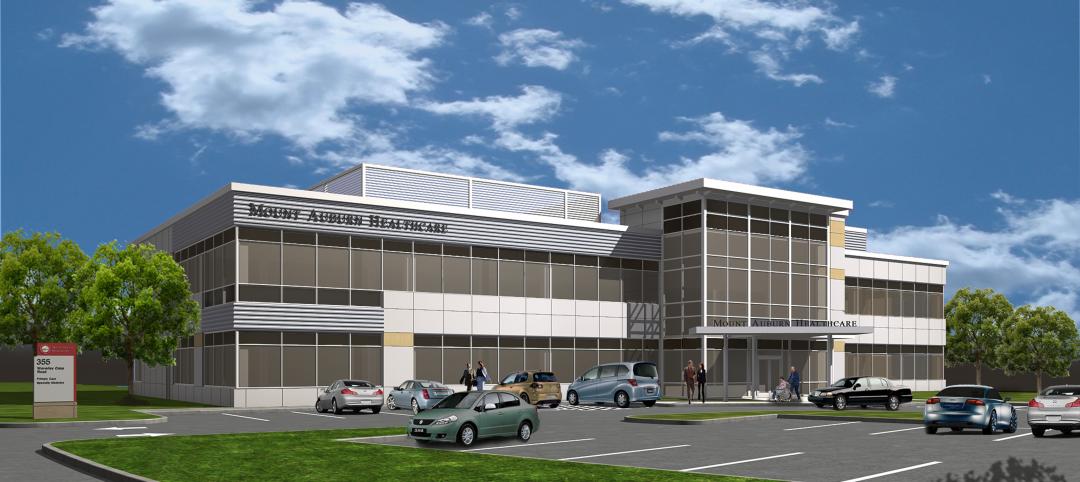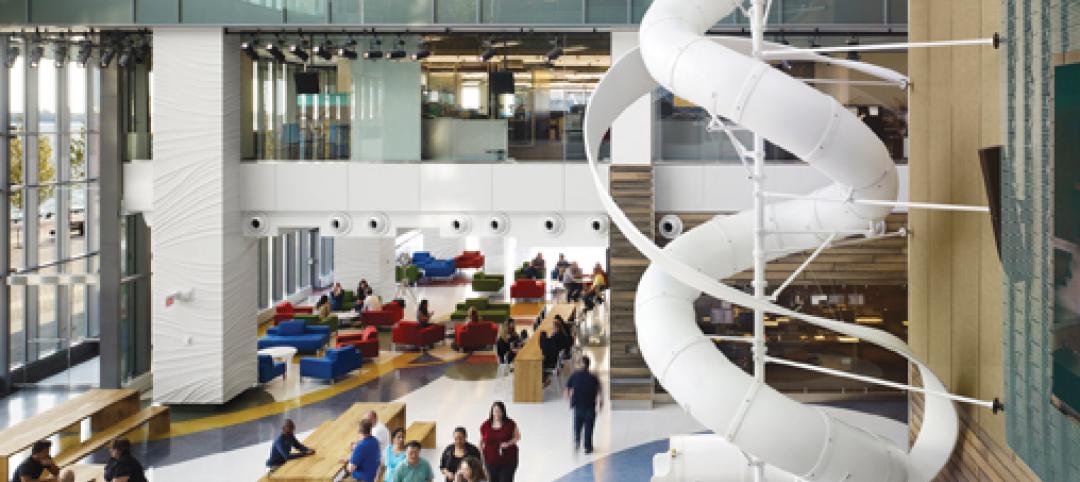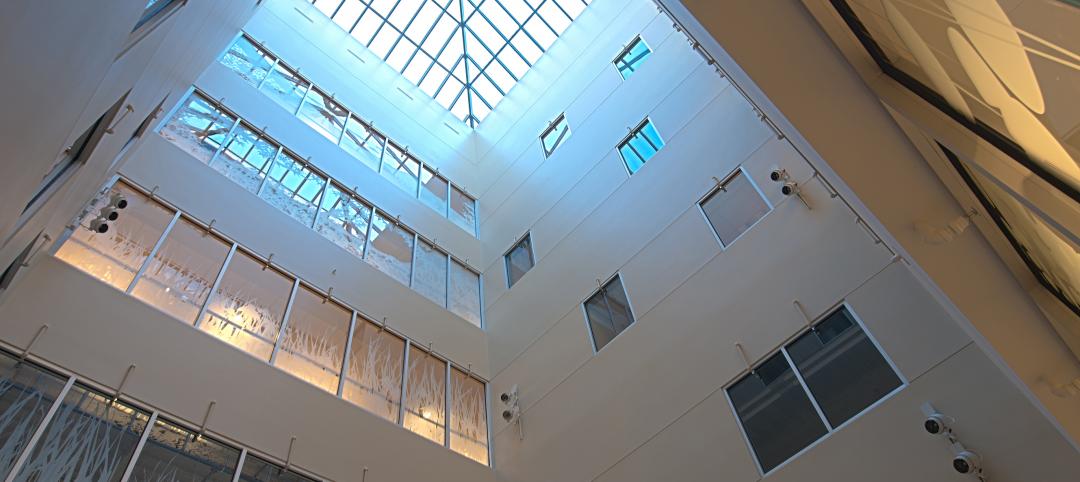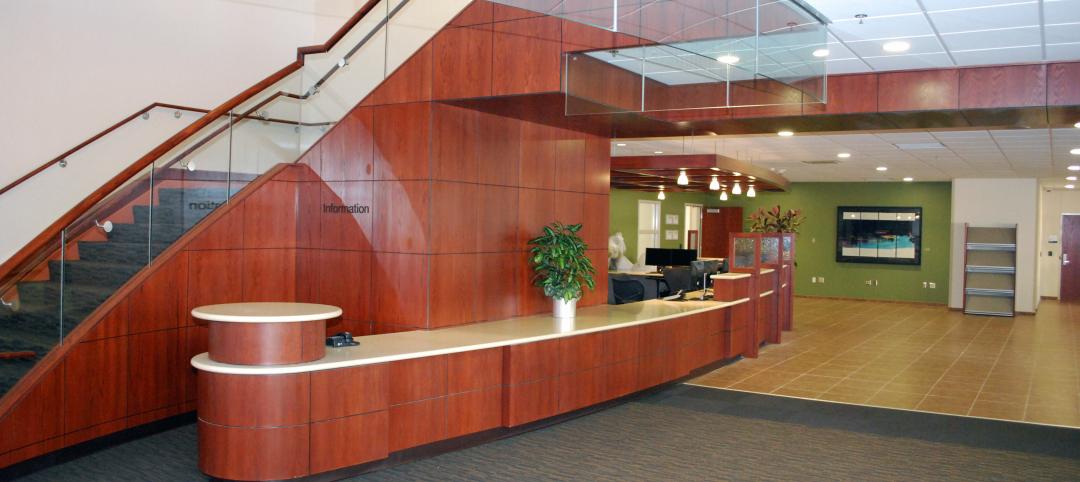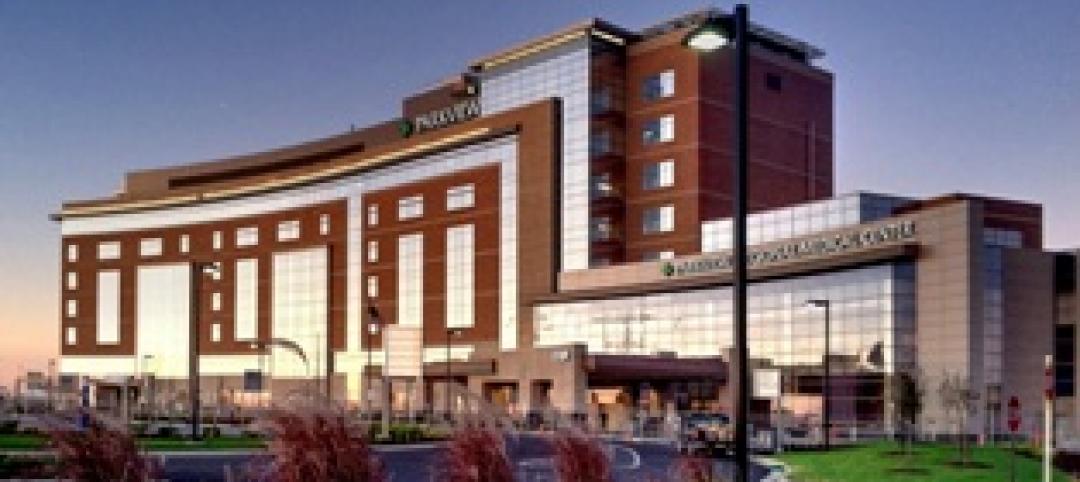Among the 25 cities in the U.S. with the largest homeless populations, the only city in Florida is Miami, with roughly 3,700 homeless, or 8.1 people per 1,000, according to U.S. News and World Report. Local agencies and programs such as Camillus House’s Lazarus Project and the Miami Permanent Supportive Housing Program target individuals suffering from mental illness that experts identify as one of the root causes of homelessness.
A team that included SBLM Architects recently completed the renovation and conversion of a vacant seven-story, 180,000-sf building—which had previously served as a mental health evaluation and treatment center—into the Miami Center for Mental Health and Recovery, whose goal is to divert individuals with serious mental problems from the criminal justice system to a facility where they can receive proper care and treatment, and possibly transition into more stable housing.
The Miami Center is a response to the Baker Act, a Florida law passed in 1971 that enables families and loved ones to provide emergency mental health services and temporary detention for people who are impaired because of their mental illness, and who are unable to determine their needs for treatment.
The revamped, 208-bed Miami Center, which in late December received its Temporary Certificate of Occupancy, is unique in that its first floor, where detainees are processed and evaluated, includes a Hearing Room with judge and magistrate chambers for related hearings and legal proceedings.
SBLM’s design, in fact, was “conceived” by Judge Steven Leifman, Associate Administrative Judge in the criminal division of Florida’s 11th Circuit Court. “The judge has been the driving force behind this,” confirms Jim Cohen, a Vice President with Miami-based SBLM Architects, who spoke with BD+C yesterday. Judge Leifman was also instrumental is raising funds for this Center.
Bureaucratic snags delay development
Cohen recounts that the “mental health diversion” concept emerged in 2010 after an expose in the mid 2000s revealed that Miami-Dade County's Correctional Department wasn’t equipped to provide the care needed by mentally ill inmates.
At first, the plan was to use only a couple of floors in the building, which was built in 1980. That morphed into a design-build project that at one point had Johnson Controls offering to pay for the entire renovation if its systems were installed. (The county declined that offer.)
The county hired SBLM in 2015, and Cohen says now that the building provided the “backbone and space to realize the judge’s vision.” The building team on this $52 million renovation project included Thornton Construction Company (GC), Bliss & Nyitray (SE) TWR Engineers (MEP), and TLC Engineering for Architecture (technology).
A continuum of care
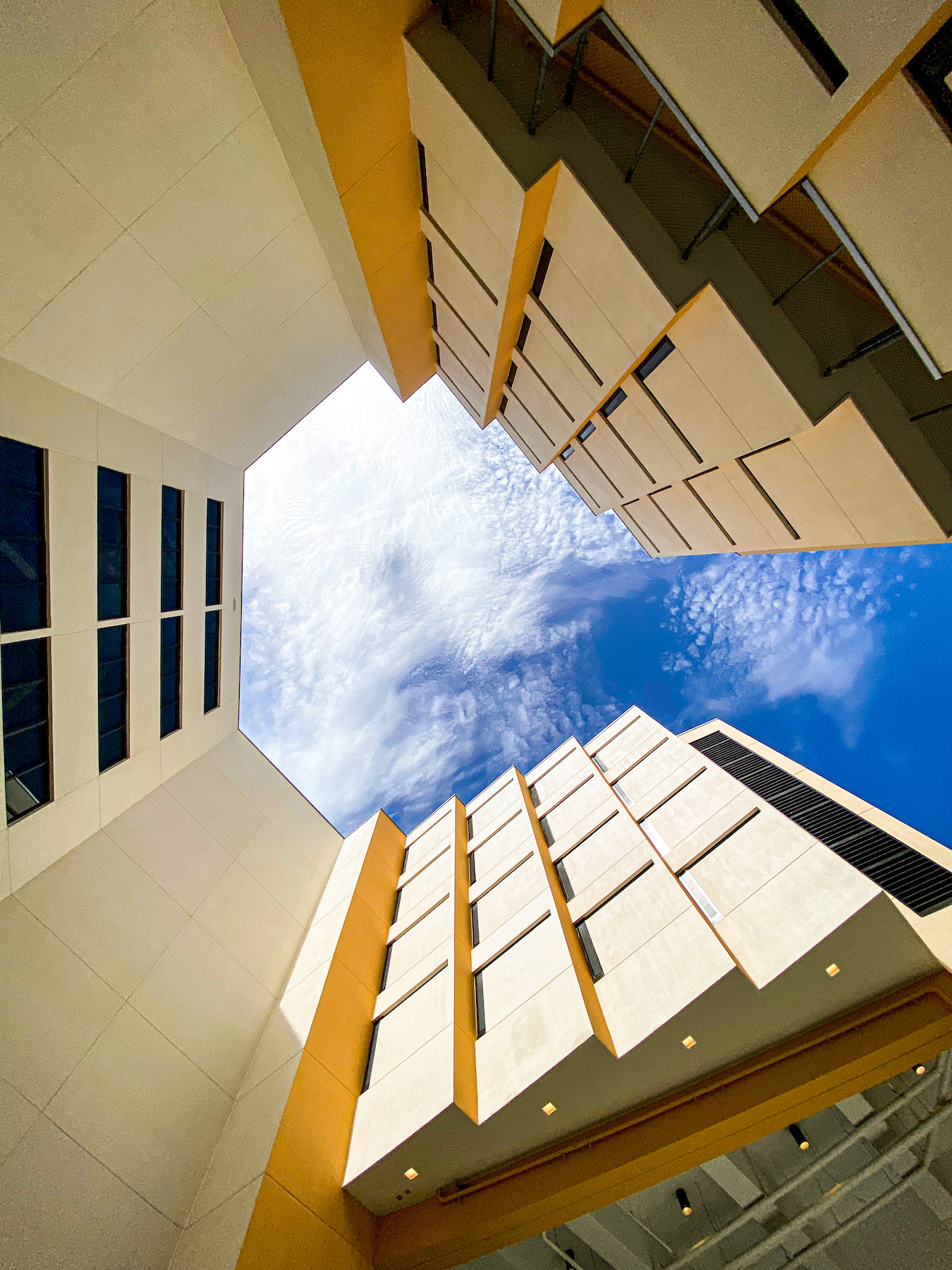
After the intake and evaluation processes, an individual is moved into Crisis Stabilization Unit on the second floor with 16 beds, outpatient clinics, 15 offices for support services, and a conference center for professional and educational training (including law enforcement training specifically for this population). The second floor also has a “respite area” for persons who don’t meet the Center’s crisis criteria but have nowhere else to go.
There’s a secure wing on the second floor for residents that includes a gym, a multipurpose day room, visitation areas, and access to a 33,000-sf outdoor recreation space with landscaping, seating, a walking path, and basketball courts.
Mechanical equipment is on the third floor, which also serves as a physical and acoustical buffer from the resident sleeping areas on floors four through six. (The seventh floor hasn’t been built out yet.) Each resident floor has six to eight sleep pods that allow patient care to be segmented. A maximum of five beds per resident floor may be assigned to that floor’s private bathroom.
Resident floors have dedicated support areas for pharmacies, exam rooms, professional therapy offices, laundries, and dining. As a resident’s condition stabilizes, there can be relocations to higher floors that provide independent living opportunities. As such, Miami Center claims to be the first of its kind in the country that offers a continuum of healthcare for the mentally ill that includes the prospect of reintegrating into society.
Treatment instead of detention
The custodial component, says Cohen, can last up to six months. If the patient shows improvement, he or she is eligible for longer-term houisng on floors five and six. At that stage, a patient can opt to leave the program.
The opening of the Miami Center, which will cost $30 million per year to run, is projected to save Miami-Dade County $100,000 per person annually by providing treatment programs to mentally ill people who otherwise would be held for extended periods in county detention facilities. Cohen says he’s been contacted by the city of Seattle about Miami-Dade’s diversion efforts, and notes that Judge Leifman has toured the facility with representatives from other cities.
Cohen adds that the first floor of the building includes a commercial kitchen that, once operational, could provide patients with training applicable to the food service industry.
Related Stories
| Apr 18, 2012
Perkins+Will designs new complex for Johns Hopkins Hosptial
The Charlotte R. Bloomberg Children’s Center and the Sheikh Zayed Tower create transformative patient-centric care.
| Apr 17, 2012
Alberici receives 2012 ASA General Contractor of the Year award
Alberici has been honored by the ASA eight times in the award’s nineteen-year history--more than any other general contractor in its class.
| Apr 16, 2012
Freeland promoted to vice president at Heery International
Recently named to Building Design+Construction’s 40 Under 40 Class of 2012.
| Apr 16, 2012
Batson-Cook breaks ground on senior living center in Brunswick, Ga.
Marks the third Benton House project constructed by Batson-Cook.
| Apr 4, 2012
HDS designs Mount Auburn Hospital’s new healthcare center in Waltham, Mass.
HDS Architecture provided design services for all the Mount Auburn Healthcare suites including coordination of HVAC and FP engineering.
| Apr 3, 2012
Suffolk completes phase one of Baystate Medical Center expansion
Construction management firm awarded emergency department project for successful build of $296 million MassMutual Wing and Davis Family Heart and Vascular Center.
| Mar 28, 2012
Holden Cancer Center opens at University of Iowa Hospitals and Clinics
The new cancer clinic provides a significant increase in patient space from the prior facility, which was located in an adjacent building.
| Mar 28, 2012
Tsoi/Kobis & Associates developing master plan for UT Southwestern Medical Center
Firm will spearhead strategies for transforming existing in-patient hospital into state-of-the-art ambulatory care facility.
| Mar 26, 2012
Jones Lang LaSalle completes construction of $536M Parkview Regional Medical Center
Hospital ushers in new era of local access to advanced medical treatments in Northeast Indiana.


